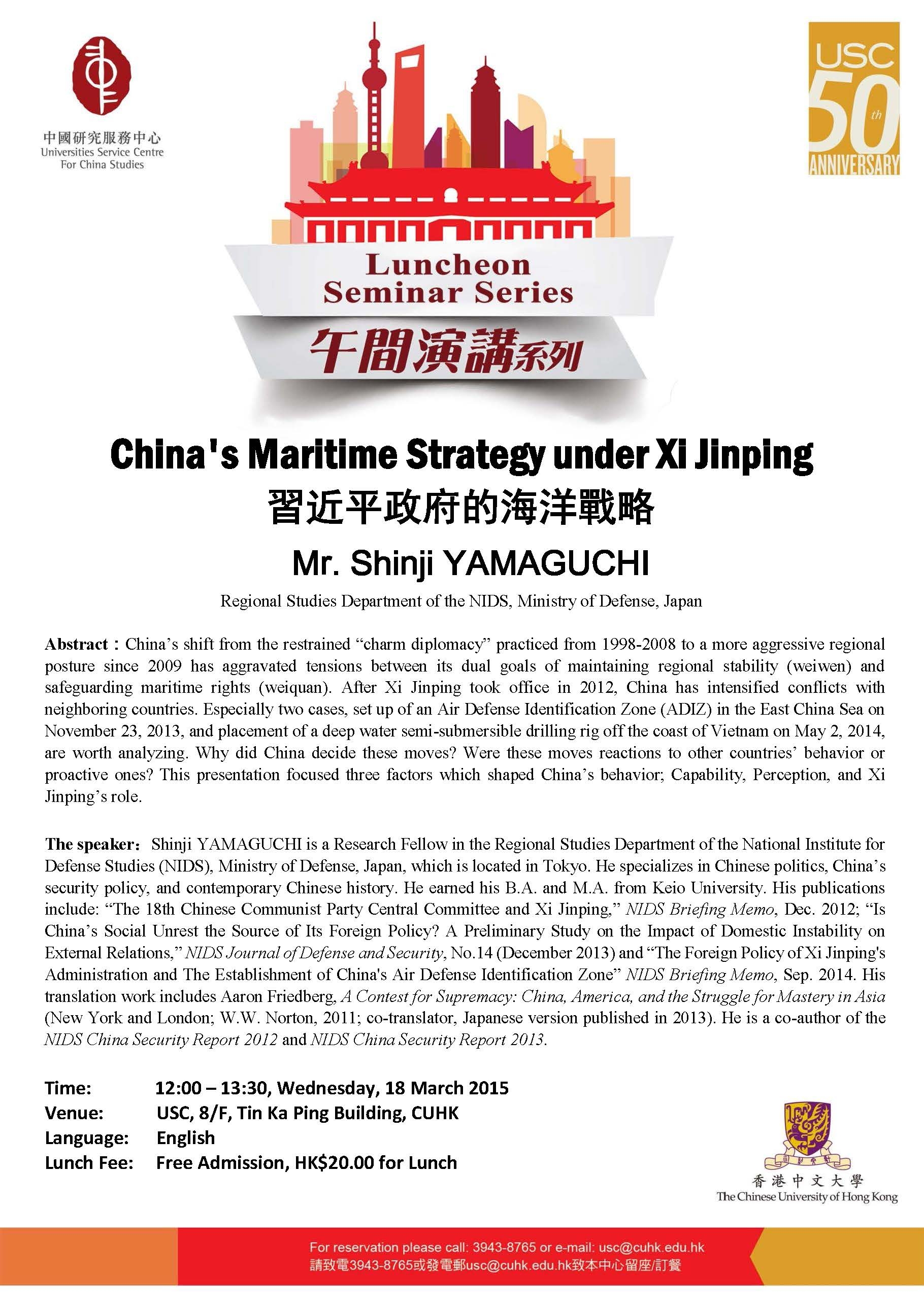活動
習近平政府的海洋戰略
2015年3月18日
12:00 – 13:30
USC, 8/F, Tin Ka Ping Building, CUHK
Mr. Shinji YAMAGUCHI
Shinji YAMAGUCHI is a Research Fellow in the Regional Studies Department of the National Institute for Defense Studies (NIDS), Ministry of Defense, Japan, which is located in Tokyo. He specializes in Chinese politics, China’s security policy, and contemporary Chinese history. He earned his B.A. and M.A. from Keio University. His publications include: “The 18th Chinese Communist Party Central Committee and Xi Jinping,” NIDS Briefing Memo, Dec. 2012; “Is China’s Social Unrest the Source of Its Foreign Policy? A Preliminary Study on the Impact of Domestic Instability on External Relations,” NIDS Journal of Defense and Security, No.14 (December 2013) and “The Foreign Policy of Xi Jinping’s Administration and The Establishment of China’s Air Defense Identification Zone” NIDS Briefing Memo, Sep. 2014. His translation work includes Aaron Friedberg, A Contest for Supremacy: China, America, and the Struggle for Mastery in Asia (New York and London; W.W. Norton, 2011; co-translator, Japanese version published in 2013). He is a co-author of the NIDS China Security Report 2012 and NIDS China Security Report 2013.
For reservation or ordering lunch please email or call the USC office before 10:00am on every seminar day. Thank you.
電話:(852) 3943-8762/8765
電郵:usc@cuhk.edu.hk
Language: English
Lunch Fee: HK$20.00
Abstract:China’s shift from the restrained “charm diplomacy” practiced from 1998-2008 to a more aggressive regional posture since 2009 has aggravated tensions between its dual goals of maintaining regional stability (weiwen) and safeguarding maritime rights (weiquan). After Xi Jinping took office in 2012, China has intensified conflicts with neighboring countries. Especially two cases, set up of an Air Defense Identification Zone (ADIZ) in the East China Sea on November 23, 2013, and placement of a deep water semi-submersible drilling rig off the coast of Vietnam on May 2, 2014, are worth analyzing. Why did China decide these moves? Were these moves reactions to other countries’ behavior or proactive ones? This presentation focused three factors which shaped China’s behavior; Capability, Perception, and Xi Jinping’s role.
Please note that the order for lunch box cannot be cancelled once it has been made. You have to pay for the lunch box you ordered even though you cannot attend the seminar. Thank you for your understanding and cooperation.


